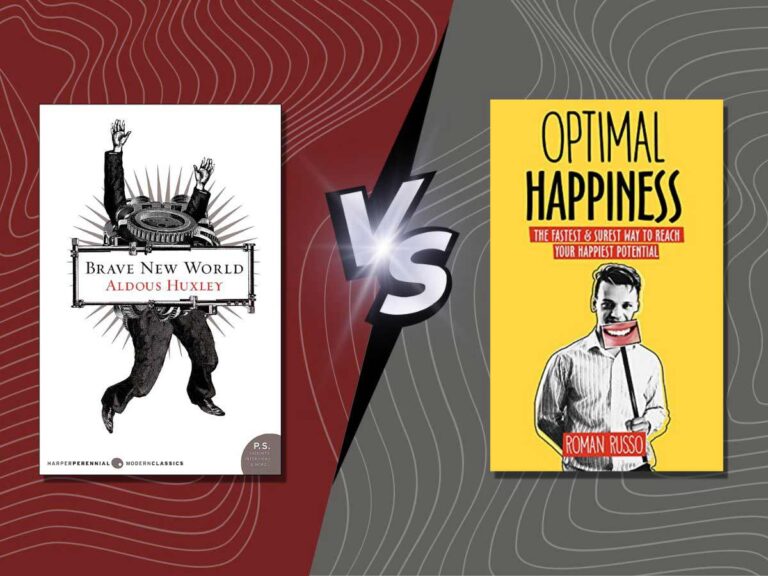
Often, people are surprised when they catch me speaking different languages, to the point that they ask “How many languages do you speak?” to which I answer “8.” This is often received with great astonishment and curiosity, to the point that people often ask me how I achieved this impressive feat in order to understand how they too can learn a few extra languages themselves.
After all, many people have a goal to speak more languages, and it is true that it can be a very difficult task, much more difficult than what most people think it will be. For example, while living in Barcelona, Spain, I saw many people visiting different Spanish language schools but only staying there for a week or a month before moving on to their next destination. Unfortunately, even learning Spanish on a super-intensive level (8 hours per day) for a week or month is not enough, so we may also ask, “How long does it realistically take to learn a language?”
Since these questions come up with relative frequency, and since I have a blog, I decided to put these things together and answer once and for all how I did it. Hopefully, this knowledge will help you too to take your language skills to the next level.
How Long Does It Realistically Take to Learn a Language?
For my Erasmus (exchange program), I went to Paris, France, spending a semester there. I was asked what courses I wanted to take, and I chose to take all of them in French, as mixing French with English or just speaking English was a bad idea since everyone in France just spoke French.
I’m happy to report that in 6 months, I learned French, and since then, I have been refining it. Although I did fail all my classes and had to repeat them the next semester back home, I still believe it to be a great trade-off to this date, while I still see that there is some room for improvement.
After all, taking a language from good to very good and from very good to fluent is A LOT of work, so I don’t want anyone to get the wrong impression. You can learn a language in 6 months by doing total immersion into that language, but it is likely that you will still need to continue to practice and improve it afterward.
Furthermore, I’ve seen people doing a “total immersion” incorrectly many times, such as people arriving in a country where people also speak English, such as Barcelona or Amsterdam, Netherlands, and spend all their time speaking English and not the country’s language. Furthermore, in London, I’ve seen many Brazilians coming to learn English, only to spend the whole time with other Brazilians, leaving with little improvement in their language skills.
Lastly, to this point, it is recommended not only to travel to a country where people speak the desired language, not only to subscribe to a language school, not only to get a partner who speaks the desired language on a native level, but also to work and/or study in the desired language. This means you need to study a subject that is unrelated to the language itself (e.g., not learning English but instead learning History in English). After all, you can still get away with not speaking your desired language everywhere except if you have to do it at work or school, as there you are forced to talk in your target language.
What Language Do You Want to Learn?
I’m an avid goal setter, and I keep a daily to-do list, which so far has helped me achieve a lot in my personal and professional lives.
In line with this to-do list idea, I recommend that you too write down somewhere everything you want to achieve, including what languages you want to learn. This is something I did when I was around 10 years old when I first wrote a short list of everything I wanted to achieve in my life. In it, I wrote that I wanted to speak 8 languages, which are:
At the age of 25, I updated my CV’s “language section” with 8 languages, all of which were on the above list. I was surprised and excited as I never really made an additional effort to learn these languages. It just happened, so to speak, as I wasn’t really consciously following this goal.
Subconsciously, however, my mind aimed at the set goal, and in my life, I took certain decisions that took me through the path of reaching these goals I desired. It is also possible to claim that the law of attraction was involved in this process if you believe in it, as by telling the higher power (aka the universe) what you want, it helps to rearrange the world to make it happen. I won’t talk about this any further in this blog post, but it is something fun to consider.
Am I Gifted to Speak 8 Languages?
One of the arguments I often hear when people learn that I speak 8 languages is that I am a polyglot and somehow gifted with an ability to learn languages. To some degree, I will agree with that statement, as some things come more easily to me in my life while other things are much harder (i.e., know your strengths and weaknesses kind of argument).
This being said, I believe that while natural talent is valuable, it’s no substitute for practice. Someone who dedicates time and effort to honing any skill will ultimately outperform a person who relies solely on innate ability but puts in little to no work.
The Mathematics of Learning a Language
“There is no such thing as a lazy person; he is either sick or uninspired.” – Zig Ziglar
Another way to learn a language is by believing that you can learn them in the first place. This means that, like in mathematics, there are two groups of people:
- Those who think they are good at math; and
- Those who think they are bad at math.
In the first case, we have people who, when faced with a mathematical problem to which they don’t know the answer, will at least try to find an answer before giving up. In the second group, people don’t even try to find an answer and immediately give up because they believe that they can’t do it.
Over time, people in the first group will have more practice solving problems, meaning that they will get better and better at this skill, while people in the second group will never learn anything and continue blaming their poor performance on their inability to do math, while what they really should blame is their motivation.
The same thing applies to learning languages. If we are truly motivated to learn a language, eventually we will learn that language. Period.
Similarly, “on paper,” we all want to speak 20 languages, to be rich, and know all sorts of other skills. In reality, however, we rarely have all these things, meaning that “on paper” and “in reality” are two different things. The difference is that people who want something superficially will never put enough work into getting what they want, while people who really, really want it will do so, regardless of the cost to them.
As such, knowing a target foreign language should become almost like a sense of identity, as if you know that you are supposed to have something, you will move mountains to get it. While if you just want something superficially, you might easily give up as soon as you face any sort of difficulty.
Your First 400 Words
Interestingly, the first 400 words in any language are often the most commonly used, making them relatively easy to learn. Mastering these words can give you a sense of familiarity with the language, a basic understanding of its lexicon, and the ability to infer meaning from context, also giving you some confidence in learning that language.
Furthermore, I once read that learning 1 word is equivalent to learning 5 new words. This is because there are often many similar words and conjugations of the same word that you start understanding as soon as you learn that one word. So by speaking 400 words, you are actually speaking 400 * 5 = 2000 words, meaning that you are speaking at a basic language level.
By this logic, basic language speaking is somewhere between 0 to 2000 words, a good speaker is someone who knows 2000 to 20,000 words, a very good speaker knows 20,000 to 40,000 words, and a fluent speaker knows 40,000 to 60,000 words, suggesting that it is the easiest to become a basic speaker in any language. Of course, it is worth saying that the 2000 words should be the most basic words, as I often see people learning advanced words they will never use, such as “supernova” at a basic level.
Becoming Fluent

As I mentioned before, going from good to very good and from very good to fluent is A LOT of work, which I can exemplify with how I learned English. I first started to learn it in my primary school. Then I went traveling with my parents, living and studying in other countries, using English as my base language to get around. Then, I started to study in English in the university, realizing that I was still making many mistakes, which I tried to rectify in the process. This gave me a lot more confidence, pushing my English to the next level. Then, I started to write this blog and my book, which again showed me the limits of my English knowledge. Later, I was living with a native speaker who made fun of my pronunciation and helped me to improve some key areas I wasn’t aware of. Lastly, today, I realize that I speak fluent English, but it is not at a native level. After all, there are some subtleties that go over my head, which only a native speaker can spot. As such, today, I trust all my writing to be reviewed by AI, which is important, but it is still not on the level of a professional native English copywriter, which I hire from time to time to review my most important texts.
In other words, while I speak 8 languages, I can’t claim to speak them all at the same fluent level. Instead, some languages like English, Portuguese, and Russian I speak the best. Then comes Spanish and French, which I speak very well. Then there is Dutch, which is currently at a good level. Lastly, I would put Italian and German, which I can have a basic conversation in and understand people, but they aren’t at a business-professional level.
Which Is the Hardest Language to Learn?
For me, the hardest languages to learn were those where I didn’t have any basis, such as if I were to try to learn some Japanese right now, as I know nothing in that language. Oppositely, the easiest languages were those with a certain overlap, such as all Latin languages (Portuguese, French, Spanish, and Italian) or Germanic languages (Dutch and German).
Essentially, when I was learning to speak Spanish, Italian, and German, I already spoke Portuguese, French, and Dutch. This helped me a lot since these languages are of the same language groups. This, however, was not enough to learn these new languages since there are plenty of people who speak one or more of these languages but cannot understand each other. An extra few steps are therefore required.
Specifically, when I tried to learn Spanish, I had just a one-week deadline from my work to learn it, as I was offered a new position where I would be required to speak that language. At this point, I already spoke Portuguese and French. To achieve this goal, I called all my Spanish-speaking friends, bought books in Spanish, downloaded Spanish movies, listened to music in Spanish, and made a bunch of language exchange appointments.
In one week, I understood that to fake a really good Spanish, I just needed two things: 1) change pronunciation from Portuguese to Spanish, as similar words are pronounced with a sound “SH” in Portuguese, while in Spanish it is “S.” And 2) change key words—for example, in Portuguese, the word “wallet” is pronounced “carteira,” while in Spanish a better translation is “billetera.” However, “billetera” in Portuguese is a “ticket office,” which is why Portuguese and Spanish speakers often don’t understand each other.
Still, knowing one language is a great help in understanding the other. On the other hand, when I became very good in Spanish, knowing Portuguese got in the way of further improving Spanish, as I often pronounced Portuguese words with Spanish pronunciation, thinking that I was saying things correctly, while in reality, I wasn’t. In other languages, like German, I never made a similar mistake simply because I’d blank on what I needed to say next, while in the Latin languages I often think that I know more than what I actually know.
How Do All These Languages Fit in Your Head?
When I hear this question, I often think that people unconsciously assume that there is a certain physical capacity that we have when it comes to learning different languages.
Limited mental capacity is, however, a completely unfounded assumption, as I once heard that our brain has the capacity to remember an astonishing amount of information, which is equivalent to 200 years of nonstop YouTube video recording.
This comes back to that argument where we are only using 5% of our brain capacity, meaning that we can probably learn 50 languages if we really wanted to.
Overcoming the Problem of Switching Between Different Languages
Some people ask me about the difficulty in switching between different languages they know. This is, for example, the case of my mother, who has to stop for a few minutes before she can talk in another language.
Personally, I don’t have this difficulty, but I recognize how it manifests in others, as I myself sometimes need a few seconds before I can start speaking a different language. To overcome this mental block, I’m reminded that our brain is essentially composed of a connection of different nodes (aka thoughts, ideas), where one node activates another, and another, such as when we see an animal, we can think it is fluffy, which can make us think of something else that is fluffy.
Practically, it means that sometimes if we are experiencing a mental block, we simply have not activated the right set of mental nodes. As such, the only thing we need to do is to remember a few basic words we already know in a language, and we are speaking the right language.
Why You Want to Learn Many New Languages
For me, learning languages was important as it opened a lot of doors in both my personal and professional lives, such as meeting people whom I wouldn’t otherwise have met and most of my jobs being in some way related to me knowing a bunch of languages.
In this way, I consider languages to be a hard skill, as much of my professional success I correlate with the number of these hard skills I possess. Other hard skills include leadership, management, data analysis, and happiness skills. Naturally, these hard skills might just be the last line of defense against the disruption caused by AI, which is poised to take over many of our jobs. Therefore, if you are going to learn something, I recommend focusing on these hard skills.
This is why the more languages we speak, the better our life becomes, which is especially true for our multicultural and multinational world we live in. So while our learning never stops we might as well improve our language skills.
Lastly, if you enjoyed this blog post, I recommend continuing to read this blog. In it, I explore other life hacks, with a specific focus on happiness as another hard skill. After all, happiness is something many people aspire to in life but often struggle to attain for various reasons, while this blog provides a definitive roadmap to achieving it.
Stay happy, multilingual, and culturally enriched.















2 thoughts on “How I Speak 8 Languages—And You Can Too”
Roman! This is such a supercalifragilisticexpialidocious article!=) may i use quotes from it on @eazzychools page for international polyglot community? This is a masterpiece and the essence of what i would like to tell people about language learning but 10 times better, you are a great Author🔥🧡💯
Thank you, Lizzy! 😍 I think you’ve figured out my weakness: compliments—a weakness shared by so many others, too! 😂 Of course, you can quote me. I would be happy for this knowledge to spread and benefit others. After all, that’s why I write!